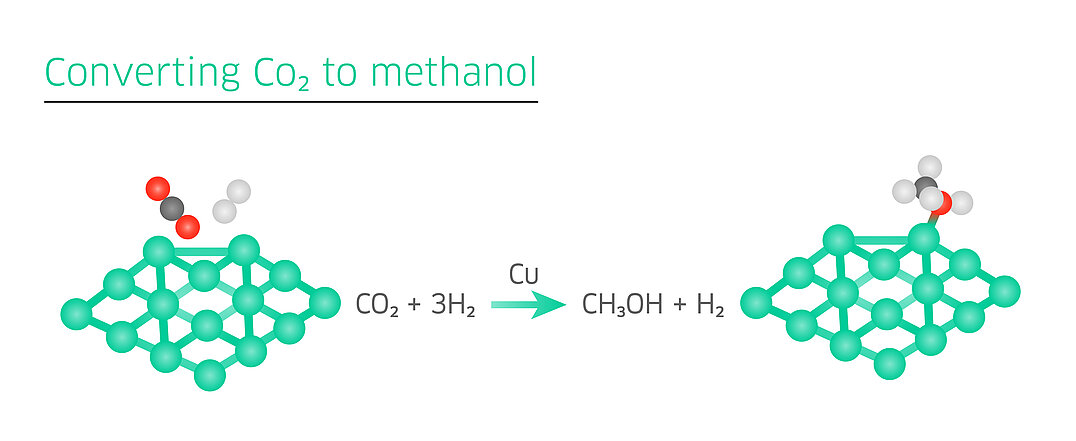UK roadtrip to visit leading scientists in the field: A 'short' blog by Maarten
Last week I had the opportunity to travel around the United Kingdom with Maurits Boeije to visit leading researchers in the field of catalysis to discuss the possibilities of being able to create new materials for their research.
Delft 30 april 2018 - Maurits Boeije
As a society, we are still relying heavily on conventional fuels. One of the side-effects of using these fuels is the production of the greenhouse gas carbon dioxide or CO2. A solution to this problem could be to store it, but it would be much better to convert it back into fuel.
Using a copper catalyst and hydrogen, it is possible to convert CO2 into methanol. Researchers from the Leiden University1 and the Radboud University2 will try to understand this process with the help of VSPARTICLE.

By understanding the reaction mechanism, the reaction conditions can be lowered from the high temperatures and pressures that are now used. Here the special properties of nanomaterials come into play. By tuning the size of the particles, the surface properties change, lowering the reaction activation barrier.
To study these properties, the VSP-G1 will be used to deposit particles onto single crystal supports in a vacuum environment. The gas phase production method is ideally suited for this purpose and eliminates the presence of surfactants. The researchers can then characterize bare particles and study the properties in the presence of CO2.
References:
1 www.universiteitleiden.nl/en/science/chemistry/casc
2 www.ru.nl/ssi/about_ssi/about-ssi/
From:
Yang et al, Fundamental studies of methanol synthesis from CO2 hydrogenation on Cu(111), Cu clusters, and Cu/ZnO(0001), PCCP 2010, 12, 9909
Image: Eva Rennen
Comments
No Comments